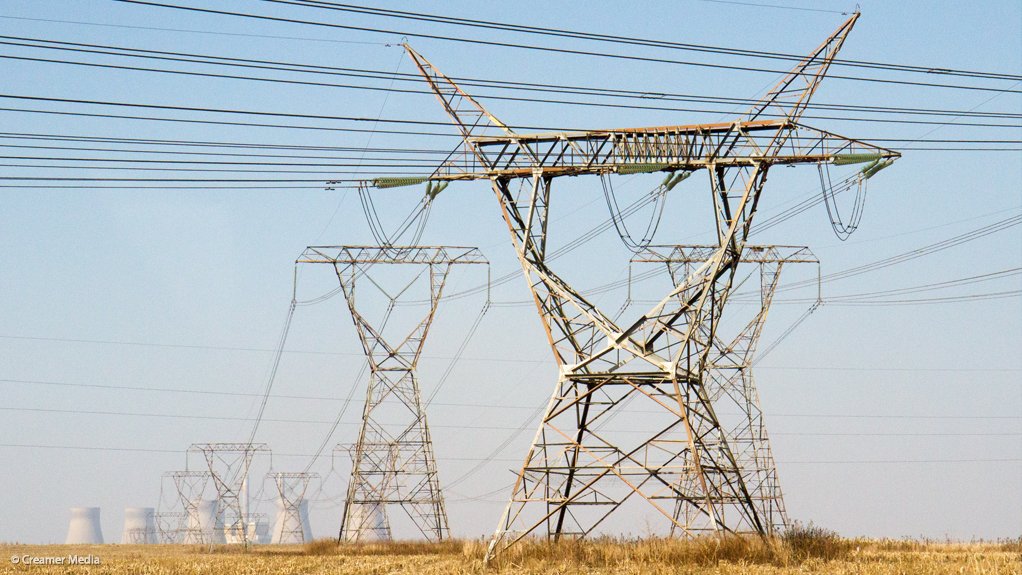The National Energy Regulator of South Afria (Nersa) indicated on Thursday that it planned to finalise the review of the Multi-Year Price Determination (MYPD) methodology by June 28.
During public hearings held in Pretoria on proposed changes to the methodology, State-owned utility Eskom’s input homed in on the regulator’s proposed changes to the benchmarking coal costs.
“[Eskom recommends] the coal benchmark cost as determined by the energy regulator will be reported for each of the three broad categories of procurement,” GM of financial planning and economic regulation Calib Cassim said.
He noted that the performance-based regulation formula should be specified for each of the categories in which coal costs were assessed, having regard for the limited ability to revise the terms and conditions of existing contracts. The physical limitations of various mine sites should also be taken into account.
He further noted that the rand/MWh performance-based regulation mechanism provided the utility with an incentive to improve production by running the cheapest power stations ahead of the more expensive stations.
However, Eskom questioned suggested requirements for 100% accuracy on coal quality and volumes. “These requirements would likely result in risks with unintended consequences and are impossible to meet,” he said, adding that coal contracting was a complicated process and reviews were not always beneficial for the consumer.
Also presenting at the hearing, Organisation Undoing Tax Abuse (Outa) mining and energy adviser Ted Blom countered that coal contacts were not that difficult to put together.
“Now is the time Eskom should be investing in coal mines and tie-up long-term contracts. [These contracts] can take a while to implement, but there are huge benefits of long-term certainty if it is done properly,” he said, adding that If Eksom “missed this boat, future generations will pay dearly”.
He recommended that Nersa approve the revision of existing coal contracts as well as new coal contracts. “Especially considering that complaints have been lodged and aired since 2008 about all the irregularities in the coal procurement and transporting and handling area within Eskom,” he said.
Blom stated that, as previously reported to Nersa, some submissions had claimed coal procurement fraud in excess of R8-billion per year since first being quantified in 2008, and this had not abated.
He noted that the time period of contracts should be revised to ensure that Eskom was not locked into long-term inefficiencies, adding that market-related coal pricing should apply.
Meanwhile, South African Local Government Agency (Salga) energy and electricity specialist Nhlanhla Ngidi commended Nersa for being more stringent regarding the implementation of rules for Eskom.
“We agree with Nersa that no coal should be procured without a signed contract so as to avoid additional costs related to coal spot purchases, and that if Eskom anticipated any force majeure event or unforeseeable conduct regarding coal supply, Nersa proposes that this be included in the MYPD application. This will ensure stability of prices during the whole MYPD period,” he said.
Salga felt Nersa should have an oversight on coal contracts pertaining to Eskom. “In the past there have been many challenges regarding coal and coal contracts and there has been a lot of leeway for coal suppliers, because there seems to be no regulatory oversight in this instance or in this area,” Ngidi stated.
Ngidi highlighted that Eskom should not have an escape clause if they did not forecast and plan accurately. “Other sectors do not compensate businesses who do not execute proper planning strategies. For example, a municipality cannot claw back or claim back the loss of revenue owing to power outages from Eskom,” he pointed out.
He added that the use of open cycle gas turbines (OCGTs) should form part of Eskom [energy] planning and suggested that good maintenance by Eskom should be rewarded in the form of low OCGT use.
“Bad maintenance will result in the need for high OCGT use. OCGT plant use is directly dependent on the performance of the rest of the Eskom’s fleet,” he said.
Nersa had also proposed new rules relating to OCGTs, indicating that gas turbine generation costs should be allowed as a full pass-through cost, but limited to volumes allowed by the regulator. The only exception being where such use is necessary to ensure security of supply, owing to force majeure events.
“Recouping excess OCGT generation and coal cost is appropriate. This will encourage prudency and efficiency within Eskom as the excessive use of OCGTs will not be priority in the production plan,” Ngidi argued.
EMAIL THIS ARTICLE SAVE THIS ARTICLE
To subscribe email subscriptions@creamermedia.co.za or click here
To advertise email advertising@creamermedia.co.za or click here











